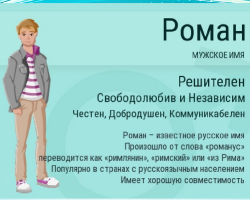- No matter how natural physiological condition is pregnancy for a woman, but the body experiences stress
- Especially often, increased voltage in the bloodstream worries after the sixth month of pregnancy
- Although the hormonal background is stabilized by the second half of pregnancy, it continues to activate blood circulation
- A second circle of blood circulation appears, new vascular branches are formed and the volume of blood increases. Such changes force the heart to work in enhanced mode
Additionally: All future mothers should replenish the list of mandatory procedures by monitoring blood pressure readings. To measure the pressure is recommended weekly.
It is better to purchase an electronic tonometer for the home: its operation is not difficult. If the pregnant woman is in the risk group or feels malaise, then the pressure should be measured daily.

You should not worry about high pressure. It is only necessary to inform the doctor about this. When should an increase in pressure above the norm cause anxiety? We will figure it out in this article.
Content
- What pressure is considered increased during pregnancy?
- Symptoms of high pressure during pregnancy
- Increased pressure during pregnancy in the first trimester
- Increased pressure during pregnancy in the second trimester
- Increased pressure during pregnancy in the third trimester
- What is the danger of increased pressure during pregnancy?
- Treatment of high pressure during pregnancy
- High pressure tablets for pregnant women
- Pressure reducing pressure
- High pressure during pregnancy: tips and reviews
- Video: High pressure in pregnant women
What pressure is considered increased during pregnancy?
- Unstable pressure in the bloodstream and its “jumps” are considered normal for the future mother
- It is important for a pregnant woman to monitor their well -being in order to prevent the development of congenital pathologies in a child, neurological disorders in time
- The full development of the baby will only provide a favorable environment and good health of the future mother

Pressure 120/80 is normal for a healthy person. Sistolic (upper) pressure shows the first digit, and diastolic (lower) - the second.
- In a pregnant woman, normal pressure should not exceed 140/90 and decrease more than 90/60. In a pregnant woman, indicators can change within 10%. Deviations in indicators by 15% or more should be the reason for a visit to a doctor
- Meanwhile, individual indicators may differ from the norm. They are influenced by many factors, among which the characteristics of the body, weight, the presence of diseases
- Therefore, you need to know your "working pressure". For this, the indicators regularly at the same time are measured independently with good well -being
- The numbers that the female consultation doctor records in the exchange card show the woman’s condition only during the next appointment, and therefore does not reflect the complete picture

- If a pregnant woman often experiences hypertension, then it is better for her to purchase a tonometer and measure pressure in the morning. When unwanted symptoms appear, it is necessary to measure the indicators every day
- Increased pressure can have an absolutely healthy future mommy, with excellent health. In this case, overstated indicators are caused by experiencing due to the upcoming examination by a gynecologist or “hypertension” of the White bathrobe, as doctors call this condition
Symptoms of high pressure during pregnancy
The woman herself will guess that her level of blood pressure increased. The headache, dizziness, nausea will indicate this. Other symptoms signal the pressure above the norm:
- after nausea, vomiting may appear
- rings in the ears, and black dots appear in the eyes
- red spots appear on the body
- weakness intensifies
Sometimes a woman begins to feel bad only with severe hypertension
Increased pressure during pregnancy in the first trimester
- In the first trimester, the joyful state of the future mommy can overshadow high blood pressure
- With an excessive increase in indicators in the first trimester, he cannot be hesitated with a visit to a doctor, because this can lead to a decrease in blood circulation and fetal hypoxia. Oxygen access can be blocked to the child and the flow of nutrients
- In the early stages, damage to the vessels entail damage to the placental bed. As a result, a spontaneous miscarriage occurs
High blood pressure at the beginning of pregnancy (until the sixth month) causes a delay in the development of the child. Other dangerous consequences can be:
- placental deficiency
- bleeding opens
- chronic hypoxia occurs
- the placenta exfoliation may begin
If you do not take measures, then with such negative changes, the probability of sudden termination of pregnancy increases.

Who is at risk when increasing the pressure above the norm:
- those who suffered from hypertension before pregnancy
- whose doctors diagnosed cardiovascular and autonomic disorders
- for diseases of internal organs
- pregnant women with kidney sick
- having excess weight
- with hormonal disorders
In the absence of problems and good health, blood pressure indicators to the end of the first trimester gradually decrease.
- This is a consequence of a decrease in vascular tone. Until the end of the 1st trimester, blood pressure stops at the minimum numbers
- If a woman suffers from hypertension, then it is necessary to begin to fight against violations of blood pressure before pregnancy
- The so -called “whims” and “jumps” of pressure are also corrected during pregnancy. The main thing in the prevention of increased pressure regularly measure indicators

Increased pressure during pregnancy in the second trimester
- The second half of pregnancy proceeds at stably low blood pressure. If you compare with readings before pregnancy, then in the II trimester the first digit (“upper”) pressure decreases by 10-15 mm. RT. Art., and the second number (“lower” pressure) decreases by 5-15 mm. RT. Art
- At the same time, women often begin to notice increased pressure from the sixth month. This does not cause ailments in a pregnant woman, but for the baby, increasing pressure in the bloodstream at such a period can cause serious problems. The pressure increases usually due to an increase in blood volume by ½ liter
- Pregnant is shown rest and a special diet. The rejection of sweets, fatty foods, salty and spicy should become a rule. Therefore, it is better to limit yourself in advance. Instead of butter on a sandwich, you can spread homemade cottage cheese with greens
- A large amount of liquid used is also undesirable. On a pregnant woman, it is recommended to drink 2-2.5 liters. Give preference to undercut food
- A pregnant woman must avoid conflicts, unrest, stress. But if there are no strength to cope with the experiences independently, then the doctor will select suitable sedative or antispasmodic drugs
Increased pressure during pregnancy in the third trimester
The 3rd trimester is characterized by an increase in pressure. At the time of childbirth, blood pressure indicators are set at the marks, which women had before pregnancy.
At 32-38 weeks, the blood volume increases to 1 liter, and closer to childbirth-up to 1.5 liters. The heart experiences a strong load: frequent contractions increase blood release by 40-50%. The pulse rises. Now it can be 80-90 beats per minute.
What is the danger of increased pressure during pregnancy?
High pressure indicates the presence of a dangerous disease for pregnant women - gestosis. Its insidiousness lies in the fact that it causes impaired functions of vital organs. The bloody and cardiovascular systems are especially subject to negative changes.

- The presence of gestosis is evidenced by the appearance of severe edema on the hands, legs. Edema appears due to microscopic holes in the vessels that arise after the placenta production of special substances
- The liquid and plasma protein penetrates the microxy. Swelling themselves does not pose a danger to the future mother. But the edema of the placenta, which develops with gestosis, leads to a lack of oxygen for the baby
- The pressure above the norm is not always a sign of the development of gestosis. But there is another danger. Vascular changes and placental affect the growing fruit: blood circulation is reduced between the fetus and the mother. Phytoplacentral deficiency develops. And this is a direct threat of intrauterine development
Important: With hypertension, the fetus develops hypoxia. The development of the fetus slows down. A child is born with congenital pathologies. Cases of birth of crumbs with neurological disorders are not uncommon.
Treatment of high pressure during pregnancy
There are many causes of increased blood pressure, therefore, consultation with the attending physician is necessary for treatment. The drugs are selected individually.
Pregnant women with pressure above the norm are risk. The treatment of such patients is under the supervision of a doctor.
How can you reduce the risk of increasing pressure:
- adjust the daily routine: labor and rest should alternate
- the duration of night sleep should not be less than 8 hours
- daytime sleep is desirable
- dietary nutrition is nutrition with a large amount of protein foods and vitamins
- with limited consumption of salt, fatty and carbohydrate food
Pregnant women from a low risk group can be treated without the use of medicines. He shows physiotherapy, lightweight labor mode, rest and small physical activity.

- Pregnant women from a high risk group are prescribed treatment with the use of medicines
- Some drugs that are used to reduce pressure can have a negative effect on the development of the fetus. But most drugs are not dangerous for the child
- If the tonometer fixes the indicators of 170/110, then independent treatment is to no avail. Immediate hospitalization will be required
High pressure tablets for pregnant women
Taking drugs with increased blood pressure to pregnant women on their own initiative is strictly prohibited. No hypertension is absolutely safe for the baby.

- Of the recommended drugs to lower pressure, you can distinguish magnesium preparations - Magne B6, Magnerot. Therapy using magnesium preparations is effective for suffering from hypertension. During pregnancy, a deficiency of this trace element is observed
- Doctors also prescribe specialized drugs to pregnant women with high pressure. The treatment should begin with a tonometer of more than 140/90 mm Hg. Art
- If the expectant mother even before pregnancy took drugs that reduce blood pressure, now these drugs may have to be replaced. During a consultation with a pregnant woman, more safe medicines will be selected
Pressure reducing pressure
In folk medicine, a motherwort, mountain ash, hawthorn are used to lower pressure. Helps Melissa, mint, root of valerian well.
It is enough to hang at the head of Sasha (a bag of fabric) with the root of valerian and mint. You can also slightly lower the pressure by drinking beetroot or cranberry juice.

What should be a pregnant woman at high pressure? Following the simple rules, it is possible to normalize pressure if it rises above the norm:
- you should refuse tonic drinks (strong tea, coffee)
- limit the use of salt, acidic products (the pressure does not increase with normal kidneys), because the kidneys do not like pickles and marinades
- increase the consumption of plant foods and animal proteins (low -fat meat)
High pressure during pregnancy: tips and reviews
Anastasia, 28 years old: “During pregnancy, I was bothered by headaches, a rapid heartbeat. The only thing that helped was a good full sleep "
Natalya, 32 years old: “At 38 weeks, the pressure sharply jumped to 135. This is at the norm 115. It did not affect my well -being. But such an increase in pressure became decisive in the appointment of stimulation "
Daria Vitalievna, 56 years old: “To prevent the development of gestosis, doctors recommend that pregnant women constantly monitor pressure readings. To my daughter-in-law, when she was pregnant, I said that she should be shy and afraid to once again bother your doctor due to increased pressure. After all, even a slight deterioration in the condition of the pregnant woman can have serious and irreversible consequences for the baby. "
Let your pregnancy pass without “jumps” of blood pressure, and the baby will be born healthy to the joy of parents!








During pregnancy, the arterial pressure of the woman falls in the first few weeks, then again slowly increases in the middle of pregnancy, reaching the level of pressure observed before pregnancy. Pregnant women with high blood pressure (hypertension) can reduce blood pressure with antihypertensive drugs, but the most effective antihypertensive drug during pregnancy is unknown.
The effect of tablets from pressure on the course of pregnancy and on the fetus itself has not been fully studied, it is known for what reasons. So there are no completely safe drugs from pressure from an evidence -based point of view.
But the increased pressure itself is fraught with undesirable consequences as for the mother, and for the development of the fetus. Up to hypoxia and other serious violations. Based on this, the doctor must prescribe the corresponding drugs individually. But when a hypertensive crisis came in a pregnant woman, you should not wait, as it is fraught with miscarriage. It is recommended that you use modern drugs of central action, like moksonidin-SZ, physiothens for stopping, before the arrival of specialists.